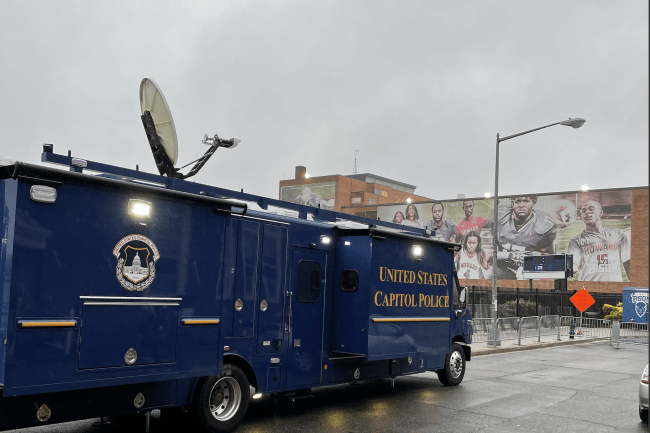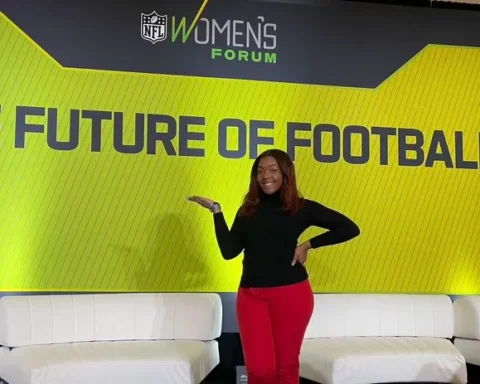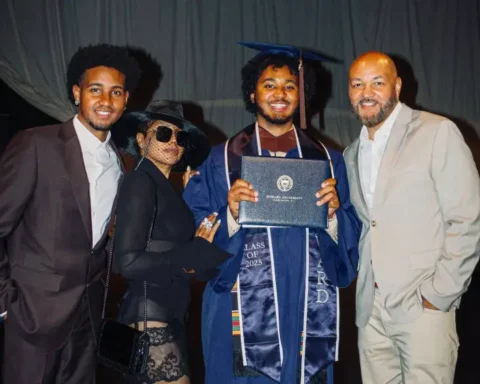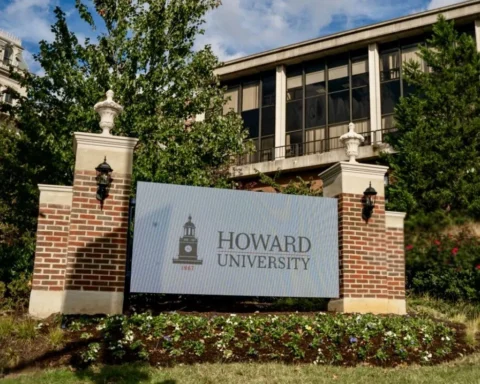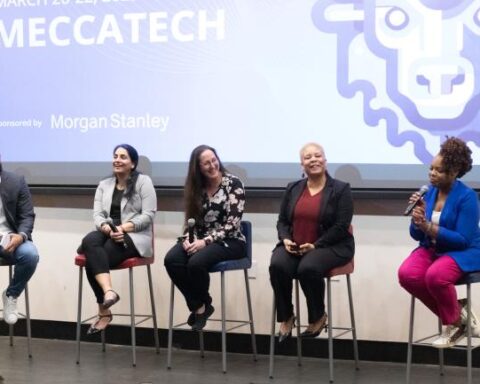By Jarrett Carter
Howard University is an anchor institution for culture and commerce in the nation’s capital, driving much of the city’s identity through its campus life, workforce development and economic impact. But the institution also plays a key role in the city’s public safety planning for students and employees on campus and for communities beyond its borders.
The most recent academic year highlighted the best of the relationships held between the University’s Department of Public Safety and partners on campus, in the district and within the federal government. A historic ransomware attack and a series of bomb threats during the Spring semester are a few of the high-profile examples that tested their mutual planning and coordination, but, according to University leaders and ranking officials within the agencies, also showcased the effectiveness of their shared work.
DPS served as a coordinating investigative partner in the University’s recovery from a substantial network intrusion last September. The attack, which was initiated by foreign actors and claimed network infrastructure for more than a week and caused a costly overhaul of University hardware and cloud programming, took place as the campus was working to re-acclimate students to on-campus living and learning after two years of limited density on campus during the ongoing coronavirus pandemic.
“You can imagine the anxiety level for students, particularly first-year students, in arriving at campus with health concerns over a pandemic with terms of engagement that no institution can control, to then have to confront a significant disruption in systems they need for learning and navigating the campus,” said Marcus Lyles, executive director of the HU Department of Public Safety and chief of police. “We’re grateful that our working relationships with officials in the [Federal Bureau of Investigation] and with the Metropolitan Police Department give us the latitude to support these kinds of unexpected events while still working to serve our direct community.”
“We really relied on collaboration with the Howard University Hospital and its staff to make sure that a return to campus did not become a large-scale public health matter,” said Ariel C. Triplett, director of emergency management for the University. “In many ways, this was a tremendous pilot for how we would use Bison S.A.F.E. technology and protocols to navigate certain issues that we didn’t know we would face in the following months.”
Several bomb threats made against the University and dozens of other historically Black institutions throughout January and February tested the limits of those protocols. Each call resulted in substantial operational changes for the University, including evacuations of residence halls and academic buildings, and increased workload for HUDPS officers. Members of the FBI and Metropolitan Police were a fixture on the main campus for weeks during the threats, which attracted national headlines and outcry from HBCU advocates for more resources in securing campuses nationwide.
Several officials from the FBI joined Howard in February for a University-wide town hall meeting, and publicly expressed their confidence in the relationship between the University and the bureau.
“The FBI obviously remains committed to making sure that all members of our communities can live, work, play [and] worship in safe spaces, and that is really what underpins our mission,” said Wayne Jacobs, a special agent in charge of the FBI headquarters’ cybercriminal division. “Our work is to protect the American people and uphold the Constitution. We remain steadfast and … work tirelessly to ensure [that commitment].”
“We are fully engaged with Howard and our local partners, and every time these things are happening, we’re taking it seriously. We don’t want something to happen,” said Special Agent Matthew O’Brien, a private sector coordinator in the bureau’s Washington field office.
O’Brien cited regional training attended by officers from the FBI and regional public safety agencies as a foundation of the relationship building between organizations, which makes a difference in sharing information and leads during investigations.
“SWAT teams, the evidence teams, they are so integrated because they literally all go to the same training,” O’Brien said. “So they all know each other; they meet all the time. It is not like they just show up and ‘Hey, how have you been?’ I mean there’s talking all the time.”
Annual crime statistics sourced from the University, District of Columbia and the U.S. Department of Education show that on-campus crime dropped by more than 58% between 2019 and 2022, despite the geographic area immediately surrounding Howard being eight times more likely to experience crimes against people or property. Lyles cites an increased number of on-site and virtual training for safety awareness, active shooter scenarios, and emergency management as a factor in the decline.
Even with these improvements, the University continues its effort to build alliances in the name of safety. In March, the U.S. Capitol Police assisted DPS security and patrolling at a Howard-hosted convening of U.S. Democratic senators. Two months later, officials returned to campus in support of the University’s Commencement ceremonies by lending mobile monitoring units and personnel for coverage during the event.
“Our partnership with Howard University helps to strengthen the USCP protective umbrella that we provide for members of Congress and congressional events, such as the recent Senate Democratic retreat held at Howard University,” said Sean Gallagher, USCP acting assistant chief of police, uniformed operations. “Director Triplett and her entire team were fantastic partners and consummate professionals.”
“We understand the impact that hosting a congressional event on Howard University’s campus takes, and our partnership, communication and collaboration from the early planning stages all the way through the successful execution of the event were remarkable,” Gallagher said. “Being able to provide the level of security that is required for an event like this as well as incorporate our operational plans into the day-to-day activities of Howard University to minimize the impact on the students and staff was a result of this successful partnership between USCP and Howard University.”

